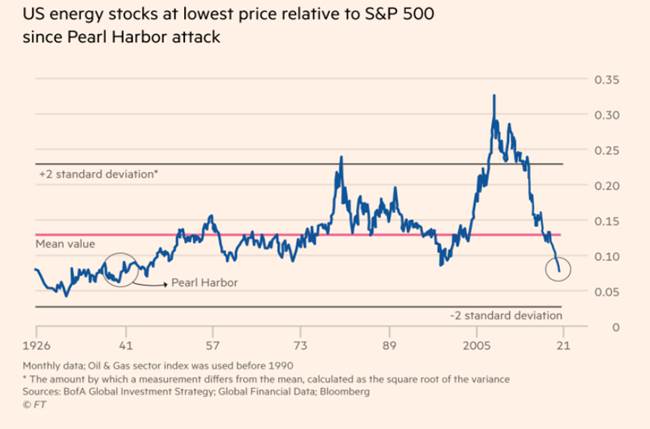Market Action
Global equities fell dramatically this week as the coronavirus spread outside of China at a high rate, and fears of a global recession skyrocketed. US stocks had their worst week since the 2008 financial crisis. The S&P 500 index experienced the fastest 10% correction from a market peak on record, just 6 days. The yield on the US 10-year Treasury note fell 1.17% to a record low. Oil declined sharply as well, with the price of a barrel of West Texas Intermediate crude oil falling $8.50 to $44.65. As a result of the chaos, volatility, as measured by the Cboe Volatility Index (VIX), jumped from 17 last week to 47 this week.
All over the world countries are taking major steps to combat the coronavirus threat. In the US, President Donald Trump has named Vice President Mike Pence to lead to the government’s response to the coronavirus. President Trump also requested that Congress appropriate $2.5 billion to fund the government’s response. In Japan, Prime Minister Shinzo Abe has closed schools in order to contain the spread of the virus. In China, the government trimmed the reference rate it uses for lending to small and midsized banks. In Italy, the government is considering delaying local tax and mortgage payments as the coronavirus spreads rapidly in parts of northern Italy. As of Friday afternoon, the number of coronavirus cases exceeded 82,000 and the number of deaths reported was about 2,800. This week, the number of new cases outside China surpassed the number of new cases reported in China.
The North Atlantic Treaty Organization (NATO) is holding emergency talks over an escalation in violence in Syria. On Thursday, 33 Turkish soldiers were killed by an airstrike in Northern Syria, Turkey is blaming the Russian-backed Syrian government for the attack. To add to the unease, Turkey has announced to the European Union (EU) that they will no longer stop migrants from crossing borders into Europe. Formerly, Turkey has prevented migrants from entering Europe in exchange for financial support from the EU.
Senator Bernie Sanders leads the Democratic primary delegate count ahead of the 15 “Super Tuesday” primaries next week. Sanders is expected to increase his lead and betting odds give him about a 54% chance of winning the nomination. Markets have reacted to some to election-related headlines but it has mostly been overshadowed by coronavirus fears.
What could affect the markets in the weeks ahead?
With the market sell-off this week, some economists say a rate cut of the Federal Reserve’s meeting next month is a sure-thing. Many are expecting a global policy response as the coronavirus outbreak spreads, urging central banks to coordinate rate cuts.
Various sets of economic data scheduled to be released next week will demonstrate just how damaging the coronavirus has been to the Asia-Pacific region. China’s official Purchasing Managers’ Index is due on Saturday, Korean trade data is expected on Sunday, and Malaysia and Australia will release export data on Tuesday and Wednesday accordingly. What this data won’t show is multiplier effects of fear that have rippled through global markets this past week.
The Organization of the Petroleum Exporting Countries and its allies (OPEC+) will meet in Vienna next week. There will plenty for the group to talk about considering oil prices have fallen 25% since the beginning of 2020. An OPEC+ committee has recommended deepening output cuts by 600,00 bpd in response to the coronavirus meanwhile OPEC+ countries, including Saudi Arabia, are considering output cuts of 1 million barrels per day for the second quarter of 2020.
The United Kingdom (UK) and the European Union (EU) will begin trade talks on Monday. The British government recently said they would walk away from trade talks if “good progress” had not been made by June.
Recommended Reads
This Week from BlackSummit
| Market Outlook: Demand-Side and Supply-Chain Risks John E. Charalambakis |
Image of the Week

Video of the Week
| Turkey-Syria tensions rise: Erdogan opens border with Europe Source: DW News |
